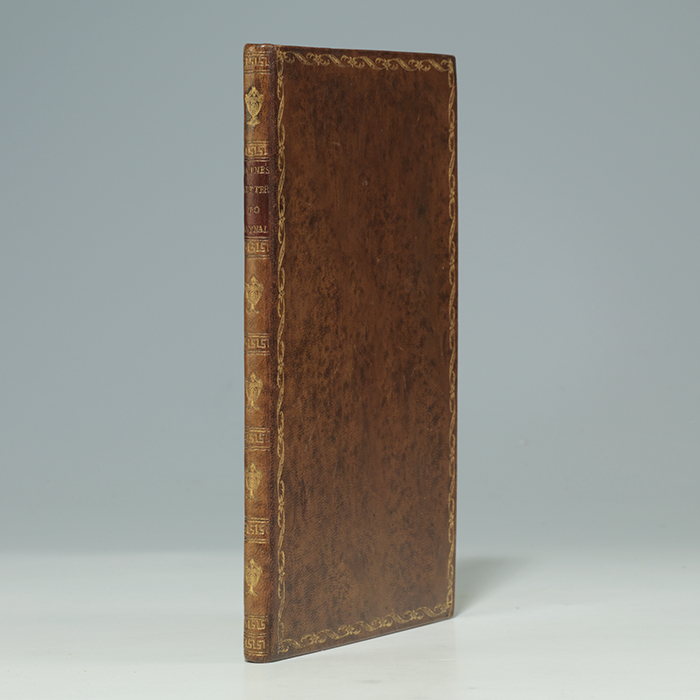
ONE OF THE "FIRST MODERN POLITICAL THINKERS TO UNIVERSALIZE A SINGLE REVOLUTION": VERY SCARCE FIRST EDITION OF PAINE'S LETTER… TO THE ABBE RAYNAL, 1782
PAINE, Thomas. Letter Addressed to the Abbe Raynal on the Affairs of North-America. In Which The Mistakes in the Abbe's Account of the Revolution of America are Corrected and Cleared Up. Philadelphia: Printed by Melchior Steiner… And Sold by Robert Aitken, 1782. Octavo, period-style full tree calf gilt, red morocco spine label, marbled endpapers; pp. (4), (i)-iv, (5)-77, (1). $7200.
First edition of Paine's important rebuttal of Raynal's pro-British work, a major work that established the American Revolution as a turning point in human history and Paine as one of the "first modern political thinkers to universalize a single revolution."
When Abbé Raynal's 1780 Révolution de l'Amérique first appeared in English in 1781, it sparked immediate controversy by claiming Americans "had declared independence only because they objected to paying British taxes" and rejected peace terms offered by the British in 1778. On reading Raynal, Paine issued this emphatic response, published close to a year after Yorktown. Paine argues Raynal was "dead wrong" in his facts and his position that "the American Revolution, like previous revolutions in history, was a temporary upheaval generated by exaggerated anxieties about piffling taxation… Letter to the Abbé Raynal was among the most eloquent, tightly argued, and insightful of Paine's essays… He objected to Raynal's use of the term revolution in its classical sense of a cyclical process, which— like the rotation of the moon around the earth— ends where it starts… Paine argued that the American events were revolutionary in that they had irreversibly altered both the structure of government and the popularly shared principles and perceptions according to which its power was now exercised… Paine was among the first modern political thinkers to universalize a single revolution" (Keane, 230-31). Paine, who sent 50 copies to Washington, "attached so much value to this document that he subsequently often introduced himself as the author of 'Common Sense and the Letter to Abbé Raynal'… This rigorous piece of writing marked a turning point in Paine's political thinking… His times, indeed, were not ripe for the radical prophecies contained in the Letter—which included the establishment of international free trade, the organization of peace on a worldwide basis," and much more (Vincent, Transatlantic Republican, 158-9). Precedes the first English edition. With half title. Postscript dated in print "Philadelphia, August 21, 1782," followed by two-line errata (77). Without blank leaf I4 as usual, no priority established. ESTC W13412. Howes P25. Sabin 58222. Adams, American Controversy 82-66a. Evans 17651. Gimbel-Yale 36.
Text very fresh and clean, beautifully bound.